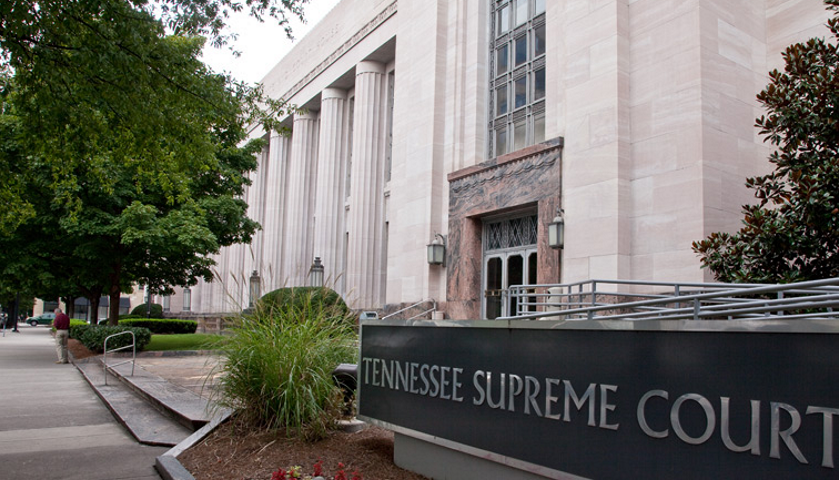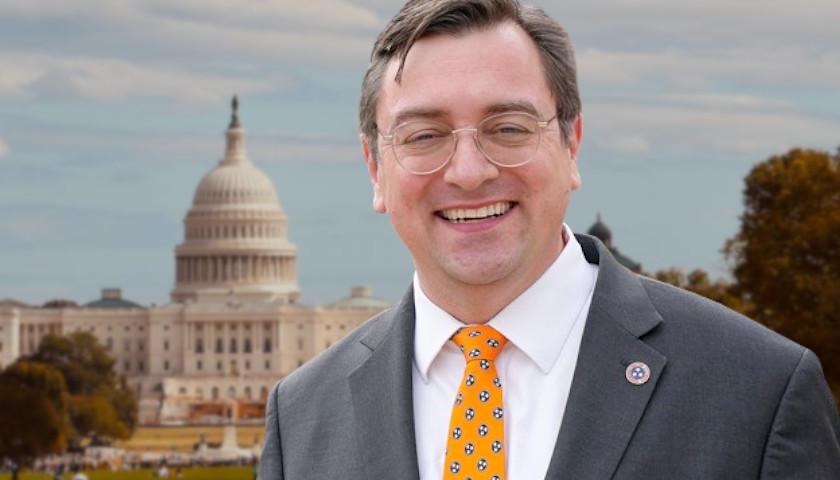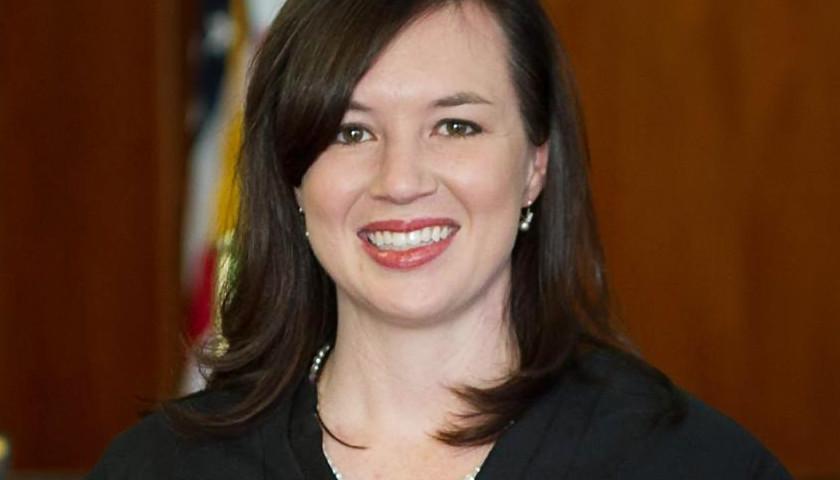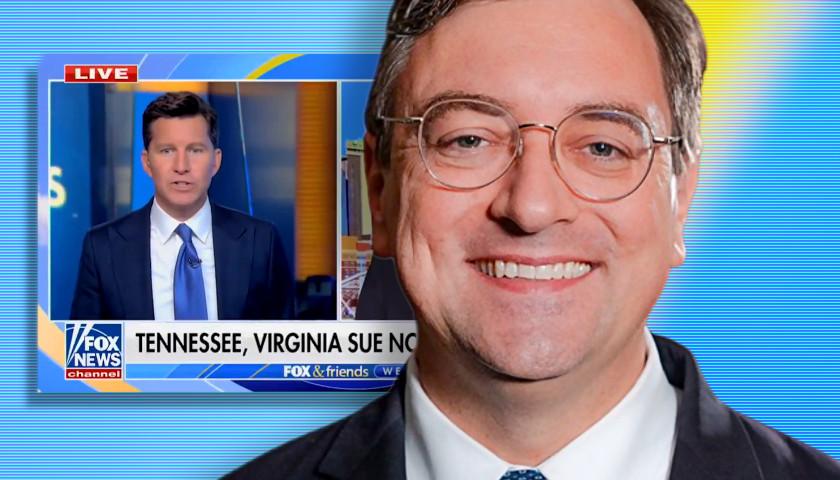The Tennessee Supreme Court, which is the body that appoints the state’s attorney general, has yet to announce an official process in the search to replace Attorney General Herbert Slatery, who leaves office at the end of August.
The process is expected to be conducted in a similar manner as the one that yielded Slatery. He has served as Tennessee’s attorney general since 2014 and is not seeking an additional eight-year term.
The court’s application and hearing process that was conducted eight years ago yielded eight applicants, including the current attorney general. Prior to his appointment, Slatery served as counsel to then-Governor Bill Haslam.
Former Lt. Governor Ron Ramsey, a Republican, was critical of the process at the time. “I don’t necessarily like the fact that they’re apparently going to make the decision behind closed doors,” Ramsey said.
Several sources told The Tennessee Star that they believe that the 2022 process needs to be far more transparent than the one that occurred in 2014.
“The public has a right to see our next attorney general stand up to true public scrutiny. The Court shouldn’t be a rubber stamp for a back-room selection of a close aide to the governor, which is what happened last time. The General Assembly should hold informal hearings and interview the applicants to shed greater light on what Tennessee can expect from the next attorney general,” one said.
The finalists not selected in 2014 were: Eugene N. Bulso Jr. of Brentwood; Robert E. Cooper Jr. of Nashville; Mark A. Fulks of Johnson City; William N. Helou of Nashville; James Douglas Overbey of Maryville; Andrew R. Tillman of Huntsville; and William E. Young of Brentwood.
On August 11, 2014, candidates seeking the position of attorney general had to complete and submit an application and other supporting materials by a publicly specified deadline. The court then publicly listed the names of and notified the finalists who continued on in the selection process on August 29, 2014.
The Court announced the same day that they would be meeting on September 2, 2014 to “finalize details for the selection process” and would be conducting hearings on September 8, 2014.
Hearings were then conducted a little over a week after the application deadline.
The court conducted the hearing process in 2014 as follows:
The meetings will be held in Nashville at Legislative Plaza, Room HR16, 301 6th Ave N, Nashville, 37243 starting at 9 a.m. CDT. Each candidate is required to speak on his own behalf for no longer than 10 minutes. Candidates may have others speak on their behalf, but the total time for each candidate and speakers cannot exceed 10 minutes. Candidates are not required to have someone speak on their behalf.
The hearing also will include the opportunity for any member of the public to express their opinions about the applicants.
The public hearing will be followed by public interviews of each of the candidates by the members of the Court. Each interview is expected to last approximately 15 minutes. The Court will conduct such additional proceedings as it deems necessary on Tuesday, September 9, 2014.
On September 8, 2014 the Court announced that it had whittled down the field of applicants to six individuals, who were: Bulso, Cooper, Fulks, Overbey, Slatery, and Young.
“This is an impressive group of applicants and an important decision. Therefore, we need to do further interviews of six of the applicants,” said Chief Justice Sharon G. Lee at the time.
One observer said of the public meeting process, “Ten minutes of public speeches, an unspecified amount of time for public comment, and then 15 minutes for an interview with members of the court seems like insufficient amounts of time in order to properly vet the next attorney general of Tennessee.”
“What we need is a solid conservative attorney general who will vigorously defend the rights of Tennesseans against the federal government,” he added.
On September 13, the Court stated that it would reveal the selection on September 15, which it did.
If the Court follows the timeline it used in 2014, then an announcement seeking applicants should be forthcoming in the next few weeks.
Previously reported, sources familiar with the thinking of Governor Bill Lee and his team tell The Star that Lee believes that “it is already a done deal” that his preferred choice for attorney general, Brandon Gibson, will get the appointment.
Those sources spoke with The Star on background with one saying, “It is very well thought by Governor Lee’s team and highest corners of office in the executive branch that the open attorney general seat is a lock to go to Brandon Gibson.”
The sources further said that it is a “generally held belief amongst those high up in the Lee administration and the Governor himself, that she [Gibson] has the job in the bag. ”
“The belief is the only way that she doesn’t get the job is that if she decides she doesn’t want it,” another said.
Sources also said that the level of confidence in the upper levels of Lee’s administration is that Gibson’s appointment seems to be a lock and not even a question in the minds of staff. “They are treating this like it is certain, short of her getting hit by a car or deciding she doesn’t want the job,” the source added.
The Star additionally reported that Brandon Gibson refused to comment when asked to comment on the pending firings of many National Guardsmen due to their refusal to comply with a COVID-19 vaccine mandate.
– – –
Aaron Gulbransen is a reporter at The Tennessee Star and The Star News Network. Email tips to [email protected]. Follow Aaron on GETTR, Twitter, Truth Social, and Parler.









The entire process needs to be changed. And the 8 year term is ludicrous. How about we change the state constitution to elect the AG? It works elsewhere. And while we are at it we need to add recall provisions for any number of elected officials. And finally, there needs to be primary runoffs if no candidate receives at least 50% of the votes. We need some direct accountability to the voters!